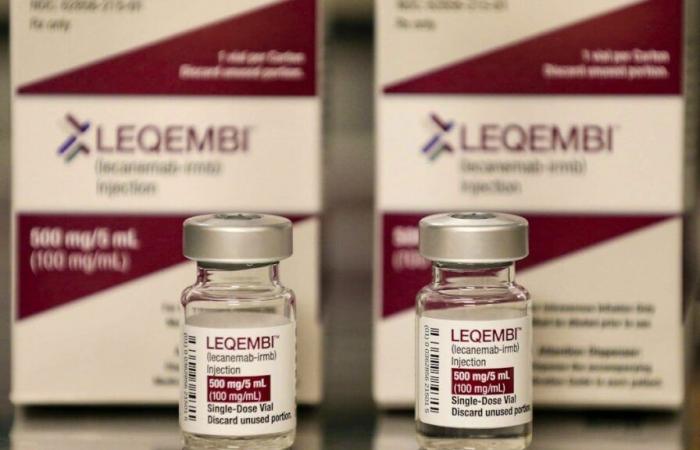A source of hope for the millions of people suffering from Alzheimer’s disease, Leqembi, a treatment capable of slowing cognitive decline, was authorized on Thursday in the EU. The European Medicines Agency, which initially blocked the marketing of this drug, now recommends it for patients at an early stage of the disease.
Leqembi, the name under which it is marketed, is administered intravenously every two weeks. Its active substance, lecanemab (or BAN2401), is a monoclonal antibody (made in the laboratory to treat specific diseases) which reduces the protein deposits, characteristic of Alzheimer’s disease, which form around neurons and destroy them. It is these plaques that lead to memory loss and then, gradually, to an inability to carry out daily tasks, to speak, and finally to dysfunction of the body.
This medicine is reserved for patients who have not yet reached an advanced stage of the disease and have mild cognitive impairment or mild dementia. Because Leqembi can cause bleeding in the brain, only patients who have one or no copies of the ApoE4 gene, a type of gene known as a risk factor for brain hemorrhage, will be prescribed it.
Not yet. An authorization request has been submitted to Swissmedic, the Swiss medicines agency. Its decision is expected by the end of 2024, according to the Synapsis Switzerland Foundation. For now, Leqembi is available in the United States, Japan and China. It was also approved by the British regulator in August 2024. Note that Leqembi is manufactured in Luterbach, in the canton of Solothurn, on the Biogen production site, explains Alzheimer Switzerland on its site.






